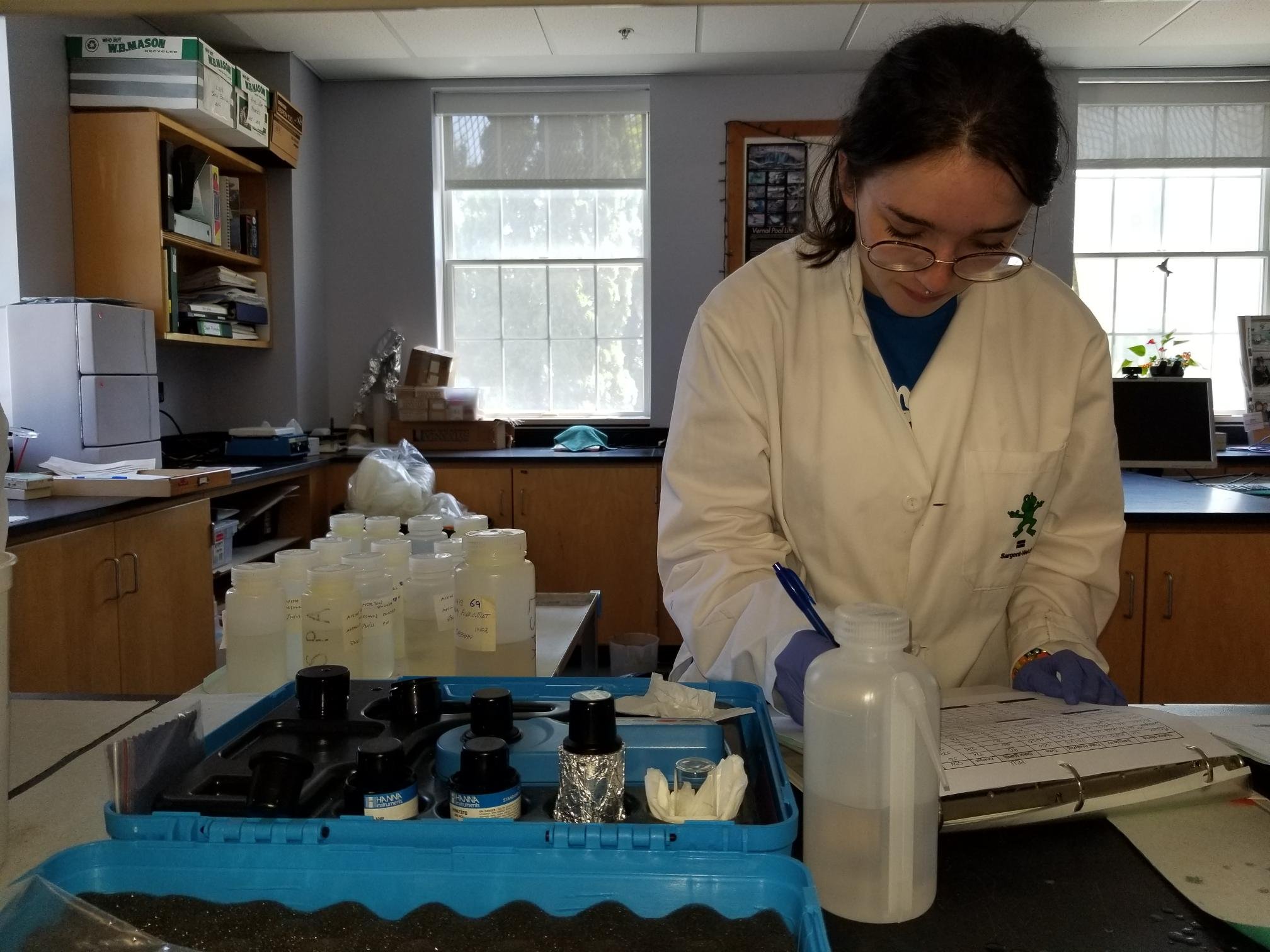Water quality Monitoring
LSPA has been collecting and recording water quality data from tributaries, lakes and ponds within the Lake Sunapee Watershed since 1986 which helps us track short and long-term changes. Sudden changes generally indicate that land activity or disturbance is degrading water quality and needs to be addressed. Long term data trends help guide LSPA in their efforts to inform and educate the public about the need to be good watershed stewards if we are to maintain or improve our high-quality waters.
LSPA Water Quality Lab at Colby-Sawyer College
LSPA’s water quality lab is housed at Colby-Sawyer College (CSC) and managed in partnership with the New Hampshire Department of Environmental Services (NHDES). This facility serves as the only NHDES satellite water quality lab in the state. The lab analyzes water samples from over 24 lakes in New Hampshire and regularly conducts water quality tests at 80 sites in the Lake Sunapee Watershed.
LSPA Laboratory Internships
LSPA hires interns to assist with water quality monitoring during the summer. In these internships students:
Gain knowledge about the parameters used to measure water quality including pH, conductivity, turbidity, E.coli, chlorophyll-a, and total phosphorus
Master all areas of water quality testing, including sample collection, handling, and data management.
Perform appropriate Quality Control/Quality Assurance procedures with appropriate documentation.
Understand how human activities affect water quality and watersheds.
Learn about the operation of a non-profit organization.
Water Quality Data
LSPA staff and volunteers record measurements and collect samples at 53 stations in Lake Sunapee, including tributary, nearshore and deep sites. Volunteers from six waterbody associations in the watershed record measurements and collect samples at 33 stations. All of these water samples are analyzed at LSPA’s Water Quality Lab at CSC. Click here to see a map of the water quality stations in the Lake Sunapee Watershed.


